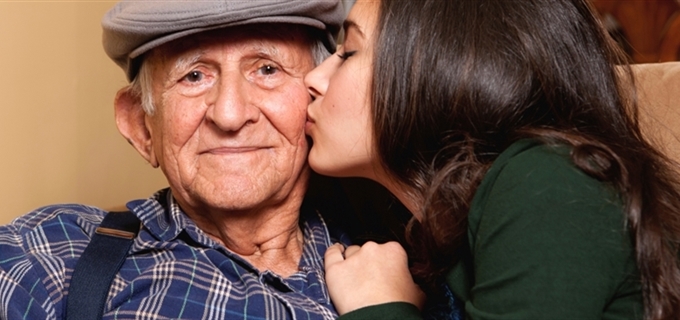Search for a doctor or hospital in your network.


Search for a doctor or hospital in your network.
Delicious recipes, helpful cooking and nutrition tips. Find food preparation videos and "ask the dietitian!"

Get News & Updates Directly To Your Inbox
So, what's the difference between being “feeling a little down” and depressed?
The National Institute of Mental Health, ![]() defines depression as a common, but serious mood disorder. It affects the way a person feels, thinks and handles daily activities, such as sleeping, eating and working. It often goes unrecognized in older adults because “sadness is not their main symptom.”
defines depression as a common, but serious mood disorder. It affects the way a person feels, thinks and handles daily activities, such as sleeping, eating and working. It often goes unrecognized in older adults because “sadness is not their main symptom.”
Still, people are unique. Many other symptoms may be present. Someone who is depressed may feel:
It’s important to understand that depression is not a normal part of aging. It can, though, be related to physical changes that take place as a person ages.
Some older adults have partially blocked arteries. They restrict blood flow through the body and to the brain. Known as “vascular depression,” it can leave a person at risk for heart disease and stroke.
Depression can also be linked to:
Because depression is hard to recognize, getting help isn’t always easy. Some people find it difficult to let family members or their doctor know they are struggling. Other health issues can also mask the signs of depression.
If you think you may be depressed:
Depression is often treated with medicine, therapy or both. Therapy can help you understand depression is not your fault. It can also help you learn new ways of thinking and problem solving.
Along the way, remember to treat yourself with kindness. Find small activities you enjoy. Just as importantly, avoid major decisions until you’re feeling better.
There are different treatments for depression. Antidepressants target brain chemistry to help regulate moods. Your doctor may prescribe one based on your medical history and symptoms.
When you talk with your doctor, be sure to:
When you start taking your medicine, ask your doctor how long it might take to begin working. Some antidepressants are effective in three to four weeks. Others may need two to three months. Follow all instructions, and ask your doctor if you may feel any side effects.
Always talk with your doctor before you stop taking any medication. If you stop taking it suddenly, you could experience side effects or your condition could worsen.
Finally, if medication doesn’t work the first time, talk with your doctor. Research shows people often try different medications before finding relief.
Originally published 10/26/2016; Revised 2019, 2021, 2023
Blue Cross and Blue Shield of New Mexico, a Division of Health Care Service Corporation,
a Mutual Legal Reserve Company, an Independent Licensee of the Blue Cross and Blue Shield Association
© Copyright 2026 Health Care Service Corporation. All Rights Reserved.
Verint is an operating division of Verint Americas, Inc., an independent company that provides and hosts an online community platform for blogging and access to social media for Blue Cross and Blue Shield of New Mexico.
![]() File is in portable document format (PDF). To view this file, you may need to install a PDF reader program. Most PDF readers are a free download. One option is Adobe® Reader® which has a built-in screen reader. Other Adobe accessibility tools and information can be downloaded at https://www.adobe.com/trust/accessibility.html.
File is in portable document format (PDF). To view this file, you may need to install a PDF reader program. Most PDF readers are a free download. One option is Adobe® Reader® which has a built-in screen reader. Other Adobe accessibility tools and information can be downloaded at https://www.adobe.com/trust/accessibility.html.![]()
![]() You are leaving this website/app ("site"). This new site may be offered by a vendor or an independent third party. The site may also contain non-Medicare related information. Some sites may require you to agree to their terms of use and privacy policy.
You are leaving this website/app ("site"). This new site may be offered by a vendor or an independent third party. The site may also contain non-Medicare related information. Some sites may require you to agree to their terms of use and privacy policy.
Powered by Verint
Last Updated 10012018
Y0096_WEB_NM_CONNECT19_C